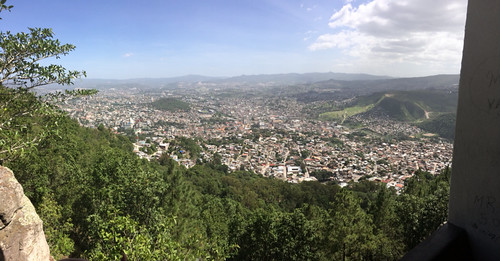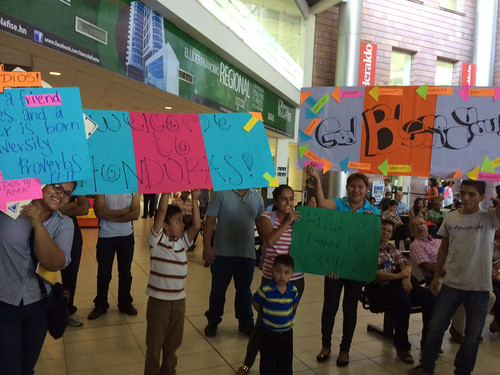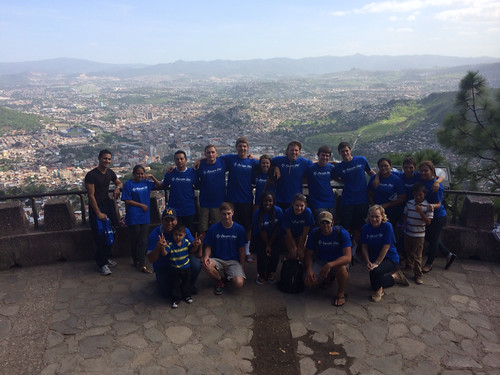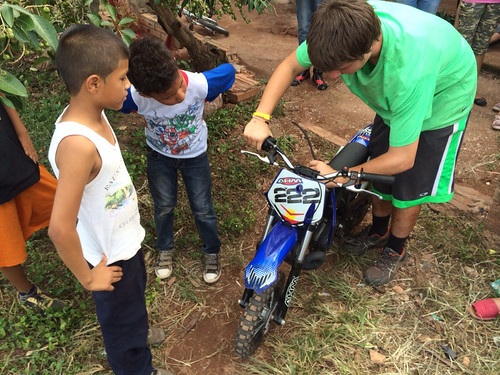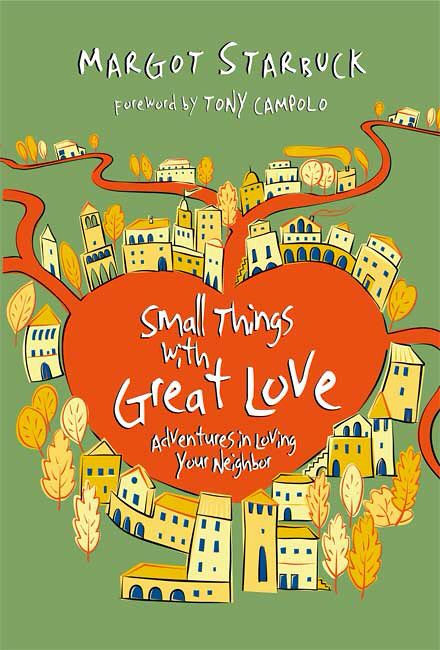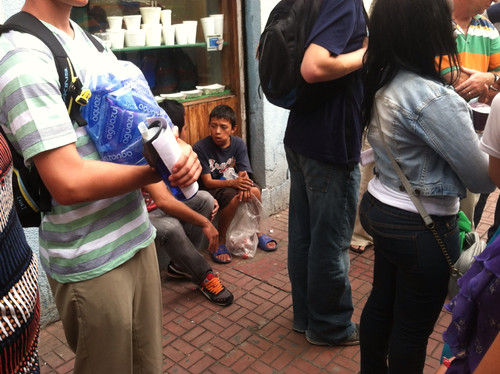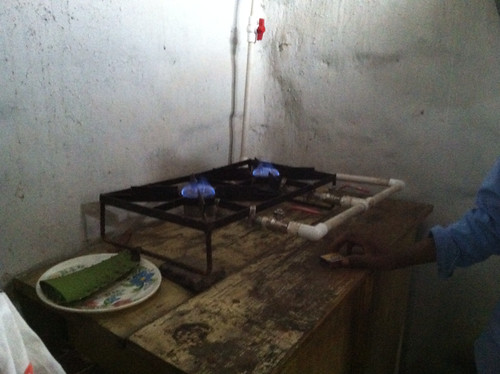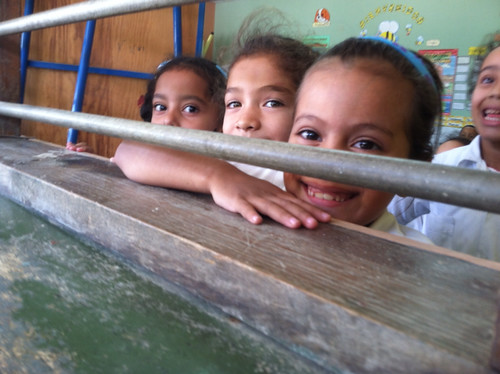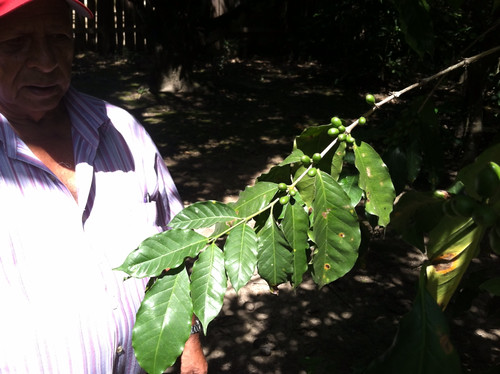This past summer, we were in the backyard of Marlon and Diana's Guaimaca home when I experienced one of the more precious demonstrations of hospitality. The youth and leaders from our church were invited to lunch in their garden as Marlon and Diana's young son walked by me with his t-shirt curled into a pouch filled with fresh-picked starfruit. With eyes wide and grin even wider, Marlonito approached the table and unfolded the bottom of his shirt as starfruit rolled across and off the foldout tables. Our young host remembered from the previous summer how much his American friends enjoyed picking from their trees and tasting the best of Honduras' produce, so he was more than prepared for our visit this time around.
Hospitality and welcome was offered by the next generation of missional partnership.
Then there was last Monday. The dream had been realized of reversing mission and welcoming our friends from Honduras into our community as we were gathered in my living room. While we were chatting about this growing partnership, my son and daughter desperately wanted to take all of us out and show our guests around their stomping grounds. So like little pilgrims, my son and daughter lead us on one of their favorite adventures, briskly walking about twenty yards ahead of us and towards the creek behind our townhouse.
Noah and Lily had made their way into the woods, briefly out of sight, although their tiny footsteps and voices were sure to be heard in the neighboring town. As Marlon, Alex, and I drew closer we encountered a familiar display of hospitality and welcome. Noah's shirt, much like Marlonito's this past summer, had been curled up and filled to overflowing with gifts. But due to the lack of suburban vegetation, instead of starfruit he delivered walnuts. Noah had gathered as many of these "walnut balls" I recently introduced him and his sister to and handed them out, one-by-one, to his new friends from Honduras. "One for you and one for you and for you," he said to each visitor. Then he showed them how to throw nature's baseballs into the creek, each toss met with a jubilant "yes!"
I froze. I am pretty sure a few tears welled up and trickled out of my eyes. My son and daughter understood partnership. They understood friendship. They understood one of the most basic elements of mission and discipleship: sharing the joys, gifts, resources, and discoveries with one another. Marlonito knows this simple truth quite well, too.
Our children no longer knew Daddy's friends as abstract people. Honduras was no longer somewhere Daddy went every summer an airplane ride away. Honduras and the people who lived there were now their friends and family, too. Actually, my daughter claimed two of them were "her girls."
If I have learned anything from the Honduras Youth-to-Youth Missional partnership it is this: mission must be reversed if ever to become true partnership. If the church desires to move beyond paternalism and less-than dignified attempts to love and serve our neighbors in other parts of the world, we must be willing to extend invitations to our friends in these communities to serve and explore alongside us in our cities, neighborhoods, communities, and churches. We must be willing to return the favor of hosting and become recipients of those who are rarely offered a chance to visit where their American brothers and sisters practice the mission of God and witness of the church.
Real Christian mission must be willing to flip the script and exchange parts if partnership is truly the desired goal. Failure to do so will only further the "us and them" mentality. That's something neither I nor Marlon want for our children. Thanks be to God we have been able to expose them them to something different. I only pray our kids will one day be able to meet.
After all, they seem to understand partnership best.
I could write endlessly about our extended weekend together, which is no doubt a highlight of my 12 plus years in youth ministry. But I think the only way to come close to capturing the joy is through selected photos:
Click "Honduras Tab" for other related posts, most notably "Declaration of Interdependence" and "The Kingdom of God is Like Mango Trees in Guaimaca."

















